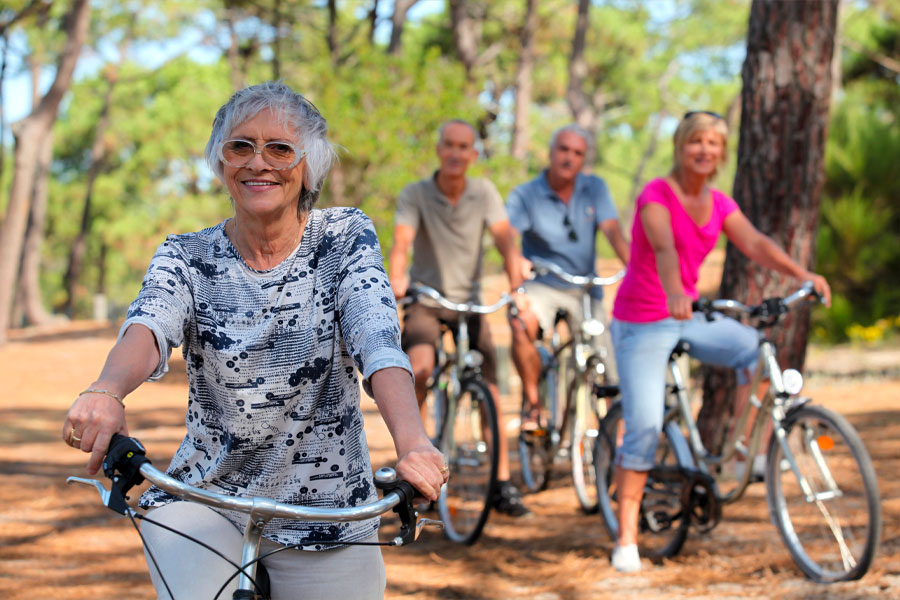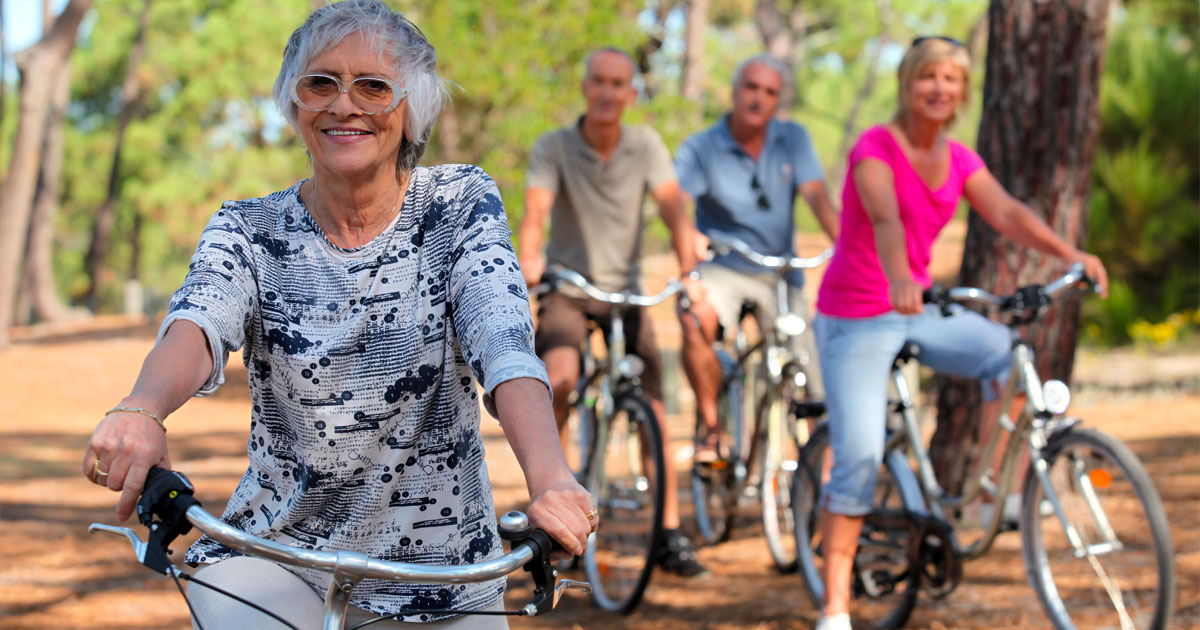
Let’s be honest; you probably don’t give your knees much thought. That is, until they start to bother you. Your knees are a workhorse of a joint, supporting your body when you walk, run, dance, play, and go up and down the stairs. So when your knees are hurting, you know it. In fact, knee pain is the second most common cause of chronic pain, affecting about 100 million Americans.
Not only do your knees work hard, but they’re also a pretty complicated joint structurally. That’s why knee pain is so common—it’s susceptible to injuries, overuse problems, and structural changes, often as the result of aging. Common symptoms of knee problems include pain, inflammation and swelling, feeling warm to the touch, redness, and loss of flexibility. In terms of function, knee problems can be associated with the feeling that your knee is about to give out, weakness, an inability to bear your weight, and noises such as grinding or popping.
It seems like there’s almost an endless number of causes for knee pain. However, some are far more common than others, including:
- Osteoarthritis, in which the shock absorbing connective tissue in your knee, called cartilage, wears away as a result of aging and years of wear and tear. When this happens, the bones in your knee begin to grate against each other, causing pain, inflammation, and bone spurs. Osteoarthritis is the most common reason that people have knee replacement surgery.
- Overuse injuries often involve the tendons, muscles, and bones in your knee. Jumper’s knee is inflammation that results from jumping and landing heavily. Runner’s knee occurs from movements that cause your kneecap to move irregularly, and IT band problems are common in runners, in which the strip of connective tissue between your hip and knee become inflamed around the knee.
- Traumatic knee injuries can be the result of an accident, a fall, or a sports injury. Some of the most common traumatic knee injuries include a tear in the protective cartilage, called the meniscus, a torn ACL (anterior cruciate ligament, which stabilizes your knee), and bone fractures.
- Bursitis is the inflammation of one of the small gel-filled sacs that absorb shock and protect your knee. Bursitis of the knee occurs when one of the bursae in your knee becomes inflamed, injured, swollen, or painful.
Treating Knee Pain
Because there are so many different causes of knee pain, there are also a variety of treatments. Traumatic injuries of the knee are often treated through Western medicine, either to fixate a fractured bone or to surgically repair torn ligaments and cartilage. However, there are a number of knee injuries and conditions in which complementary and natural treatments, such as acupuncture, can play a leading role in reducing pain and promoting healing.
Many people who suffer from chronic knee pain have turned to acupuncture and have found relief. In fact, a number of research studies have explored the role of acupuncture in treating chronic pain, including knee pain. In a review of these studies, researchers have concluded that acupuncture can help reduce knee pain and improve function in patients with osteoarthritis of the knee.
While acupuncture may feel unfamiliar to some people, it’s important to know that there are very real physiological effects from the treatments. Scientists have found that acupuncture helps to block pain signals that are being transmitted to your brain and increase the circulation of pain-relieving neurotransmitters. In addition, acupuncture helps to reduce inflammation locally, where the needles have been placed, because it increases the circulation of inflammation-fighting white blood cells. Overall, acupuncture helps to promote better circulation in the treated area, relax tight muscles, improve your range of motion, and promote the healing process.
In addition to acupuncture, it’s important to know that there are some things that you can do for yourself to help alleviate your knee pain, including:
- Make sure you’re wearing good shoes that support your feet well. Worn out or poorly fitting shoes that don’t support your feet and throw your ankles, knees, and hips out of alignment.
- If your workouts include a lot of running, jumping, or racquet sports, mix up your activities to prevent overuse injuries.
- Pay attention to biomechanics, especially when you’re exercising. Improper bike seat height, an unbalanced running gait, or lifting weights with bad form can cause or contribute to your knee pain.
- Being overweight or a sudden weight gain is hard on your knees. Because your knees bear the weight of each step you take, an extra twenty pounds can be a recipe for knee pain.
- If your knees are hurting, give them a rest, especially if you suspect an overuse injury.
Whether you’re suffering from years of wear and tear, trying to avoid knee replacement surgery, dealing with overuse problems or have suffered from some other kind of knee injury, the bottom line is that acupuncture can be an important healing tool. It’s a drug-free solution that can help relieve your knee pain and get you back to your regular activities, safely and naturally.

Cindy Chamberlain is an acupuncturist in Overland Park, KS and the founder of Eastern Healing Solutions, LLC. She is licensed in Kansas and Missouri and has been practicing traditional Chinese medicine since 1996.


